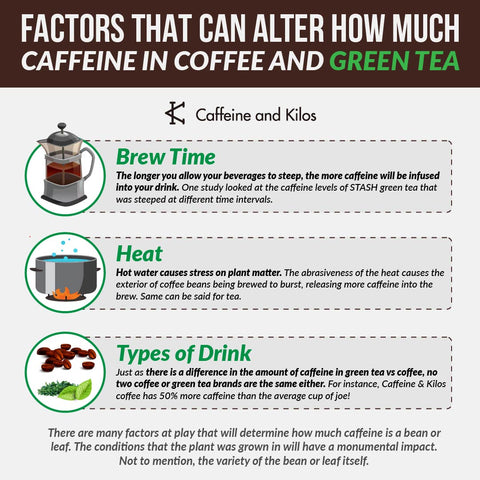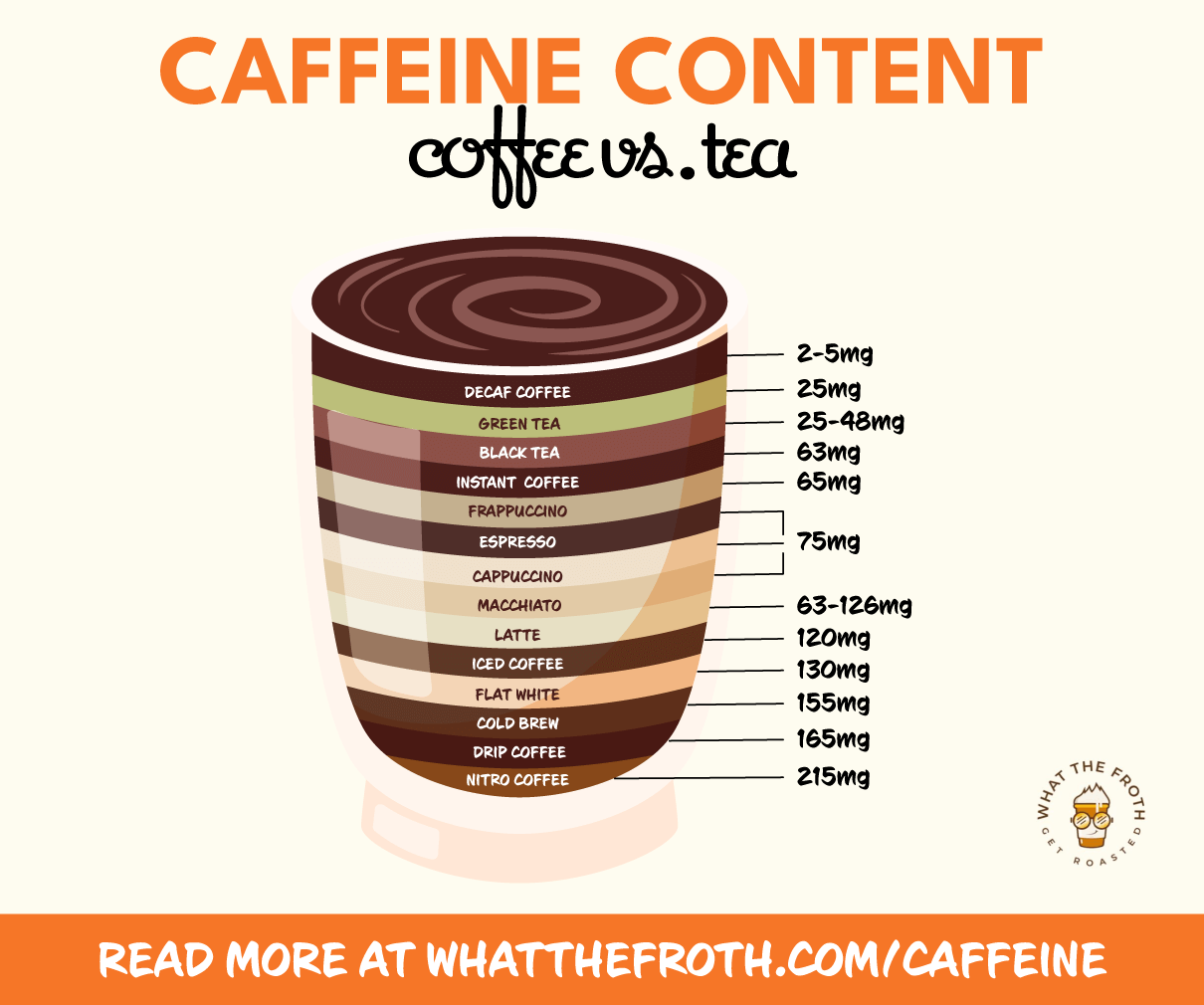
One exception is shade grown green teas like Kabusecha. Benefits for some people mean better sleep, brain protection against aging and even reducing bad breath! It also has chlorophyll, a naturally occurring pigment in green plants known for providing a health boost. Green tea does contain caffeine, but usually has a lower caffeine content than black tea and oolong tea. Green tea is also loaded with antioxidants and has many of its own health benefits. So while some people experience jittery side effects associated with coffee, caffeine in green tea generally has a more mild and calming effect. Because of this bind with L-theanine, the caffeine in green tea releases slowly over time and provides more stable energy. This relationship also helps improve brain function by increasing dopamine and lowering anxiety. This organic compound binds to caffeine and together, they balance and control the stimulating effects. A cup of green tea contains approximately 20-45mg caffeine, which is lower than black tea (approximately 50mg) and coffee (approximately 90-95mg). But green tea also contains an amino acid called L-theanine. In general, more alkaline conditions enhanced extraction efficiency. For example, a shot of espresso contains about 63mg of caffeine. The caffeine content of Pu-erh tea is comparable to black tea.

It’s produced by compressing the tea leaves into cakes and fermenting them for as long as 15 years. Pu-erh tea is a traditional Chinese drink with deep earthy flavors. Black tea has a relatively high amount of caffeine.

Like tea, a lot of factors can influence the caffeine content of coffee including the type of coffee beans, the roasting process and the type of coffee. A cup of black tea has about 50 milligrams of caffeine. Extra caffeine doesn’t get stored in your body either. First, green tea typically has less caffeine than coffee (more on this later). Lipton green tea from Fall 2017 had the highest total catechin content (Table 2) and was the only tea for which we observed a decrease in caffeine yield with increasing alkalinity (Figure 2). Like for like, a cup of coffee has around double the amount of caffeine compared to black tea, with an average of 95mg per cup. Caffeine increases the amount of acid in your stomach and may cause heartburn or upset stomach. Researchers have discovered that white tea contains marginally higher levels of caffeine than green tea brewed under the same conditions. This means you feel that coffee buzz soon after drinking it. Caffeine in coffee goes straight into the bloodstream and stimulates most people almost immediately.


 0 kommentar(er)
0 kommentar(er)
